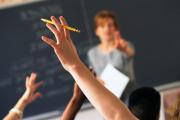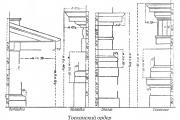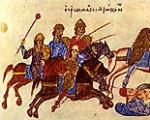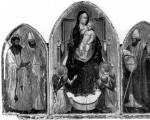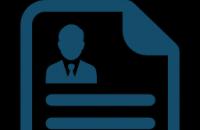youth in accordance with the principles and values of a particular society. This is exactly what the teacher works on constantly, forming in the younger generation knowledge, concepts and beliefs about the rules of human society in accordance with the principles and norms of morality, law, and aesthetics. By instilling in young people ideas about universal human values, the teacher teaches them to regulate their behavior in accordance with these values, to live according to the principles of kindness and mercy, tolerance, respect and humanity towards others.So, The role of a social teacher in modern society is manifested in his social functions listed above.. In factall these functions do not appear separately from one another, but in a common complex, reflecting the complex interrelations of different aspects and phenomena of life.
Social teacher, Municipal Educational Institution “Elan-Kolenovskaya Secondary School No. 1”, Novokhopyorsky District, Voronezh Region
Dunaeva O.P.
The role of the social educator in the work of a modern school
A modern school is in dire need of support and development of a system of socio-psychological support for students. The growth of child crime, teenage drug addiction, computer addiction and “virtual” aggression in children, the lack of a system of universal values among the younger generation (tolerance, communication skills, culture) - all these problems are acute for schools and society as a whole. Their solution is impossible without the professional work of specialized specialists - social educators.
The professional responsibilities of social educators include working with children, adolescents, youth and their parents, adults in the family environment, with teenage and youth groups and associations.
This means that the main sphere of activity of a social teacher is society (the sphere of the person’s immediate environment, the sphere of human relations). At the same time, the priority (especially in modern conditions) is the sphere of relations in the family and its immediate environment, at the place of residence. A social teacher works with children, their families, family and neighborhood environment, and the goal of his work is to organize preventive, socially significant activities for children and adults in society.
Thus, the social teacher:
organizes educational work in the classroom, group, aimed at the formation of a general culture of the individual, adaptation of the individual to life in society, respect for the surrounding nature;
studies the psychological and pedagogical characteristics of the individual and his microenvironment, living conditions, identifies interests and needs, difficulties and problems, conflict situations, deviations in behavior and promptly provides social assistance and support to students and pupils;
acts as an intermediary between the individual and the educational institution, family, environment, authorities; - promotes the realization of the rights and freedoms of students, the creation of a comfortable and safe environment, and the protection of their life and health;
creates conditions for the development of talents, mental and physical abilities of students outside of class hours;
interacts with teachers, parents (persons replacing them), specialists from social services, family and youth employment services and other services in providing assistance to students, children in need of guardianship and trusteeship, children with disabilities, as well as those in extreme situations;
participates in the development, approval and implementation of educational programs of the institution, is responsible for the quality of their implementation within the limits of its competence.
The relevance of the work of a social teacher in school in modern conditions
In organizing his work, the school social teacher gives priority to the creation of a healthy microclimate in the team, the humanization of interpersonal relationships, promotes the realization of everyone’s abilities, the protection of individual interests, the organization of leisure, inclusion in socially useful activities, studies the special problems of schoolchildren and teachers, and takes measures to solve them. The social worker maintains constant contact with the students' families. He pays special attention to the problems of protecting the child from parental cruelty, selfishness, and permissiveness.
Areas of social work that the social teacher also deals with:
provision of material assistance (monetary, patronage, benefits and benefits, assistance in everyday life);
organization of social care (working with people, recruiting employees, checking, promoting best practices);
influence on a person.
The process of influencing a person is a process of pedagogical and psychological influence. This is done by a social worker, a social teacher. H the same is the main thing in the work of a social teacher, how does it differ from the work of a school teacher, a subject teacher, and even a class teacher or teacher of a boarding school or an extended day group?
A teacher most often has to work with a class or group, and, basically, his methods are aimed at working with a team. A social educator works with an individual, with an individual child, a teenager, and if with a group, then a small one, if with a family, then with each individual.
A social teacher identifies children in need of social assistance. These are underachieving children who, due to their abilities, cannot master the school course. These are children who experience stress either in a group of peers at school or in the family. These are sick children, with certain disabilities, schoolchildren who have been involved in drugs or alcohol. Most often, they are registered with the juvenile affairs commission. In addition, a social teacher works with gifted children.
Today, the urgent problem is the lack of various sections and clubs, various labor, tourist and local history groups. As a consequence, the student’s extracurricular time is poorly occupied in organizational terms. The social teacher becomes the organizer of the student’s extracurricular time, uniting in his educational work with parents.
A social teacher coordinates the work of the teaching staff with difficult children, families, the surrounding social microenvironment and the community of the microdistrict, which is also important today. He periodically informs the teaching staff of the school about the psychological climate in the classes, about each difficult student and about providing assistance to him, and also plays a major role in preparing and drawing up a social work plan for the school.
Basic forms, methods of work, documentation, rights and responsibilities of a school social educator
A social teacher performs a large amount of work. His clients are both students and their parents and their families. But in general it does the following functions
:
Educational
, i.e. ensuring targeted pedagogical influence on the behavior and activities of children and adults; assistance from all social institutions, physical culture and sports institutions, and the media.
Diagnostic
, i.e. making a “social diagnosis”, for which the study of personal characteristics and social and living conditions of children, families, and social environment is carried out; identifying positive and negative influences and various types of problems.
organizational,
those. organizing socially valuable activities for children and adults, teachers and volunteers in solving the problems of social and pedagogical assistance, supporting education and developing the implementation of plans and programs.
Prognostic and expert
, i.e. participation in programming, forecasting, designing the process of social development of a specific microsociety, in the activities of various institutes for social work.
Organizational and communicative
, i.e. inclusion of volunteer assistants and the population of the microdistrict in social and pedagogical work. Organizing joint work and recreation, establishing interaction between various institutions in their work with children and families.
Security and protective,
those. use of the existing arsenal of legal norms to protect the rights and interests of the individual. Promoting the use of state coercive measures and the implementation of legal liability in relation to persons who allow direct or indirect illegal influence on the wards of a social teacher.
Mediation
, i.e. communication in the interests of the child between the family, educational institution and the child’s immediate environment. Here you can add another function - self-education.
It is important for any professional to constantly replenish his intellectual baggage. This fact also applies to the social teacher.
We are used to seeing at school, first of all, teachers and representatives of the administration (director, his deputies for academic affairs). However, in a modern school there are other positions, for example, psychologist or social teacher. And parents often do not know what their responsibilities are, or what questions they can ask them about. This article is about what the functions and responsibilities of a social teacher at school are.
Who is a school social educator?
This question remains a secret for many parents. So who is a social educator? Let's try to answer it.
Social teacher
- this is the person in the school who organizes interaction and unites the efforts of the school, family, and community to support and comprehensively assist in the development and upbringing of children.
Activities of a social teacher at school
The activities of a school social teacher involve interaction with children, studying the age and psychological characteristics of all students, and organizing various types of socially useful activities. In addition, the activities of a social teacher are aimed at social support for the child and family, assistance and direction of actions of parents and teachers to prevent negative impacts on the personality development of difficult children, and, if necessary, helps to implement legal protection. Communication with difficult children requires special tact and professionalism from the teacher.
A social teacher engages in his teaching and educational activities not in the classroom, like a subject teacher, but in school clubs, sections, circles, and multi-age groups. Only the extracurricular environment gives him the opportunity to become more closely acquainted with the behavioral characteristics of children (in particular, deviant behavior or the behavior of outsider children). Thus, the teacher identifies students who have difficulties adapting to external conditions of existence, studies the characteristics of their character and behavior, and outlines measures and ways to help such children. At present, when cases of alcohol dependence, drug addiction and delinquency among teenagers are quite common, a social teacher must carry out activities at school.
Functions of a social educator
The functions of a social teacher at school are to interact with:
- children at risk;
- parents;
- law enforcement agencies;
- socially vulnerable families of students;
- teaching staff.
The function of the social teacher is also to identify students who are busy with work (during school hours). He ensures that they attend classes, monitors the compliance of working conditions with the norms established by law (in particular, regarding remuneration). The social teacher controls the payment of benefits and the implementation of other social benefits that are provided to large families (free breakfasts in the school canteen, provision of school uniforms, covering transportation costs).
The task of such a teacher is to engage in research work, identifying the demographic structure of the area, as well as socially disadvantaged families, teenage children prone to committing crimes, and children with health problems. He must organize various charitable events in which orphans and children with disabilities take part.
Not all teenagers are familiar with the norms of social behavior. In these cases, the help of the school and the social teacher will be useful, in particular, in order to acquaint children with their rights and social guarantees, which apply to both education and work. Such guarantees include: provision of wages not lower than the legal subsistence level, the right to receive free education and medical care, and others.
Job description of a school social teacher
Job responsibilities social pedagogues imply painless inclusion of the child into society. That is why so much attention in the job description of a social teacher is given to contacts with fellow teachers, parents, officials, representatives of children's and youth organizations, etc. We provide a sample job description of a social teacher according to the Federal State Educational Standard, taking into account the main functional responsibilities of a specialist in this area.
Job description of a social teacher
I APPROVED
CEO
Last name I.O. ________________
"________"_____________ ____ G.
This job description was developed and approved on the basis of an employment contract with a social teacher, in accordance with the Labor Code of the Russian Federation and other regulations governing labor relations.
1. General Provisions
1.1. A social teacher belongs to the category of specialists.
1.2. A social teacher is appointed to the position and dismissed from it by order of the director of the institution.
1.3. The social teacher reports directly to the director of the institution.
1.4. During the absence of a social teacher (vacation, illness, etc.), his duties are performed by a person appointed by order of the director of the institution.
1.5. A person who meets the following requirements is appointed to the position of a social pedagogue: higher education in the specialty “Social Pedagogy” or higher pedagogical education with subsequent retraining and assignment of the qualification “Social Pedagogist”.
1.6. A social teacher should know:
— laws of the Russian Federation, regulations and decisions of the Government of the Russian Federation and federal bodies on educational issues;
— fundamentals of social policy, law and state building, labor and family legislation;
— general and social pedagogy;
— pedagogical, social, developmental and child psychology;
— socio-pedagogical and diagnostic methods.
1.7. A social teacher is guided in his activities by:
— legislative acts of the Russian Federation;
— The institution’s charter, internal labor regulations, and other regulations of the institution;
— orders and instructions from management;
2. Functions of a social educator
2.1. Carries out a set of measures for upbringing, education, development and social protection of the individual in institutions and at the place of residence of students (pupils, children).
2.2. Studies the psychological, medical and pedagogical characteristics of the personality of students (pupils, children) and its microenvironment, living conditions.
2.3. Identifies interests and needs, difficulties and problems, conflict situations, deviations in the behavior of students (pupils, children) and promptly provides them with social assistance and support.
2.4. Acts as an intermediary between the personality of students (pupils, children) and the institution, family, environment, specialists of various social services, departments and administrative bodies.
2.5. Determines the tasks, forms, methods of social and pedagogical work, ways to solve personal and social problems, takes measures for social protection and social assistance, implementation of the rights and freedoms of the individual students (pupils, children).
2.6. Organizes various types of socially valuable activities for students (pupils, children) and adults, events aimed at the development of social initiatives, implementation of social projects and programs, participates in their development and approval.
2.7. Promotes the creation of an environment of psychological comfort and personal safety of students (pupils, children), ensures the protection of their life and health.
2.8. Carries out work on employment, patronage, provision of housing, benefits, pensions, registration of savings deposits, use of securities of students (pupils, children) from among orphans and those left without parental care.
2.9. Interacts with teachers, parents (persons replacing them), specialists in social services, family and youth employment services, with charitable organizations, etc. in providing assistance to students (pupils, children) in need of guardianship and trusteeship, with disabilities, deviants behavior, as well as those in extreme situations.
2.10. Provides consulting social and pedagogical assistance to parents, teachers, and employees of other institutions.
3. Job responsibilities
The social teacher performs the following job responsibilities:
3.1. Acts as an intermediary between students (pupils, children) and the institution, organization, family, environment, specialists of various social services, departments and administrative bodies.
3.2. Determines the tasks, forms, methods of social and pedagogical work with students (pupils, children), ways to solve personal and social problems, using modern educational technologies, including information and digital educational resources.
3.3. Takes measures for social protection and social assistance, implementation of the rights and personal freedoms of students (pupils, children).
3.4. Organizes various types of socially significant activities for students (pupils, children) and adults, events aimed at the development of social initiatives, implementation of social projects and programs, participates in their development and approval.
3.5. Promotes the establishment of humane, morally healthy relationships in the social environment.
3.6. Promotes the creation of an environment of psychological comfort and personal safety of students (pupils, children), ensures the protection of their life and health.
3.7. Organizes various types of activities of students (pupils, children), focusing on the characteristics of their personality, the development of their motivation for relevant types of activities, cognitive interests, abilities, using computer technologies, incl. text editors and spreadsheets in their activities.
3.8. Participates in organizing their independent activities, including research. Discusses current events of our time with students (pupils, children).
3.9. Participates in the implementation of work on employment, patronage, provision of housing, benefits, pensions, registration of savings deposits, use of securities of students (pupils, children) from among orphans and those left without parental care.
3.10. Interacts with teachers, parents (persons replacing them), specialists in social services, family and youth employment services, with charitable organizations, etc. in providing assistance to students (pupils, children) in need of guardianship and trusteeship, with disabilities, deviants behavior, as well as those in extreme situations.
3.11. Participates in the work of pedagogical, methodological councils, in other forms of methodological work, in the preparation and conduct of parent meetings, recreational, educational and other events provided for by the educational program, in the organization and conduct of methodological and advisory assistance to parents (persons replacing them) of students (pupils) , children).
3.12. Analyzes the personal problems of students to provide them with timely social assistance and support, the promising opportunities of the educational institution in the field of implementing projects for the adaptation of students in the modern social environment.
3.13. Systematically improves his professional qualifications.
3.14. Independently plans his work for each academic year and each academic quarter under the leadership of the Deputy Director for Social Affairs and Child Welfare. Submits a work plan for approval to the director of the educational institution no later than 5 working days before the start of the planned period.
3.15. Submits a written report on his activities to his immediate supervisor within 10 days after the end of each academic term.
3.16. Passes periodic (once a year) medical examination.
3.17. Ensures the protection of life and health of students (pupils, children) during the educational process.
3.18. Complies with labor protection and fire safety regulations.
4. Rights of a social teacher
A social teacher has the right:
4.1. Within its competence, on behalf of the school, establish business relations with institutions of education, sports, health care, culture, law and order, social protection, children's and youth organizations, psychological and socio-pedagogical assistance services, local government bodies and authorities, the media for the purpose of social - pedagogical assistance to students, protection of their rights, health and life.
4.2. On issues within his competence, submit for consideration to the management of the institution proposals to improve the activities of the institution and improve working methods; comments on the activities of the institution’s employees; options for eliminating existing shortcomings in the institution’s activities.
4.3. Give mandatory instructions to teachers and students within the scope of their powers.
4.4. Require management to create normal conditions for the performance of official duties.
4.5. Make decisions within your competence.
5. Responsibility of a social teacher
The social teacher is responsible:
5.1. For failure to perform and/or untimely, negligent performance of one’s official duties.
5.2. For failure to comply with current instructions, orders and instructions for maintaining confidential information.
5.3. For violation of internal labor regulations, labor discipline, safety and fire safety rules.
6 Relationships. Relationships by position.
Social teacher:
6.1. Works irregular hours according to a schedule based on a 36-hour work week.
6.2. Plans its work for each academic year under the leadership of the deputy director for educational work.
6.3. Receives regulatory and legal information from the school director and deputy director for educational work.
6.4. Systematically exchanges information on issues within its competence with teaching staff and deputy directors of the school.
6.5. Informs the school administration about difficulties encountered in the implementation of projects and programs for the social adaptation of students.
6.6. Informs the administration about any difficulties or problems that have arisen.
Responsibilities of a social teacher at school
The responsibilities of a social educator are as follows:
- creating normal, friendly relationships between members of the class team;
- humanization of relationships between children;
- promoting fuller realization of the potential of all students;
- measures to protect the rights of each student;
- conducting school-wide entertainment events, involving children in socially useful work;
- maintaining contacts with families of schoolchildren;
- identifying cases of child abuse in families and measures to protect children from violence and selfishness of parents;
- performing intermediary functions connecting the child with parents, government bodies whose tasks include caring for the development of the spiritual, physical and mental components of the child;
- establishing friendly, tolerant relations between individuals and the environment;
- promoting effective interaction between organizations and institutions involved in social education.
The task of the social educator, joining forces with families, is to organize extracurricular leisure activities for students. He also monitors how effectively sections, clubs, studios, labor, tourism, and local history groups work and coordinates their activities. A social teacher collaborates with the teaching staff in matters of raising difficult children and building relationships with problem families. He is a link between school and society, in particular, he studies the social microenvironment. The duty of a social pedagogue is to regularly inform school teachers about the state of the psychological climate in different class groups, about the psychological characteristics of difficult students and recommend methods of helping such students. The responsibilities of a social teacher include preparing and drawing up plans, in accordance with which social work is organized at school.
The social worker must pay special attention to students who have been expelled from school. He must help them decide on another educational institution and become a full member of the new class team.

Documentation of the school social teacher
In addition to working in these areas, the responsibilities of a social teacher include maintaining and working with documentation, which can be divided into three groups:
- Regulatory documents.
- Work planning.
- Materials on core activities.
1 group. Regulatory documents
These are the documents that primarily guide the social teacher in his work. Such documents include:
- Job description certified by the head of the institution.
- The work schedule of a social teacher, certified by the head of the institution.
- Laws of the Russian Federation necessary in the work of a social teacher.
- Orders, instructions, resolutions regulating and determining the content of the activities of the socio-psychological service.
- Orders of the director of an educational institution regulating the work of the socio-psychological service (for example, orders “On the appointment of a person responsible for the work on the prevention of social orphanhood” “On the creation and work of the school Prevention Council”, etc.)
2nd group. Work planning
- Analysis of work for the previous 3 academic years (analytical and statistical).
- Work plans of a social teacher for the academic year, which includes joint work with the school administration, psychologist, class teachers, medical worker, Governing Council, etc.).
- Plans for joint work of the school social teacher with institutions of the prevention system (KDN, PDN inspectors, local inspector, etc.).
- Work plan for a month, week.
- Weekly work schedule.
3rd group. Main activity materials
- School social passport for 3 years.
- Card index (lists of students by category) All lists must be compiled with as much information as possible
- from large families;
- from low-income families;
- from disadvantaged families;
- children with disabilities;
- guardian children;
- those who are registered internally at the school;
- registered with ODN and KDNiZP;
- prone to vagrancy, suicide;
- supplied for free meals by category.
- Card for individual study, teenagers registered at school, ODN, KDN and ZP.
- Lists of disadvantaged, low-income, large families.
- Rehabilitation programs for every dysfunctional family.
- Protocols of the Prevention Councils. The minutes of the Prevention Council must be drawn up in accordance with the requirements for the execution of protocols, i.e. indicating the serial number of the meeting, the composition of the sitting persons invited to the Council, the agenda of the meeting is indicated, which should begin with an analysis of the implementation of previously adopted decisions. When considering the personal files of students, it is indicated which of the parents or their substitutes was invited, what decision was made, and who is responsible for implementing the decision of the Prevention Council and the deadlines for implementing this decision.
- A log of the raids carried out, reports on the inspection of the living conditions of the family, including complete information (the date of the raid, the composition of the raid participants, a list of families who planned to visit with a note on the results of the visit (were it possible to visit the parents or persons in their place or not). All information are noted in the students’ personal cards: who was at home, what work was done (conversation, warning or protocol drawn up, whether the situation with the student, in the family, etc. has changed)
- Information on the employment of “at-risk” students during extracurricular hours.
- Materials on the summer employment of students in need of social assistance (children from low-income families and large families, disabled children, supervised children), students at risk (from disadvantaged families registered with the school).
- Analysis of academic performance and attendance of “at-risk” students by quarter and per academic year.
- Information about crimes committed and student offenses. Statistical report: digital data from the Ministry of Internal Affairs on the number of crime cases, the date of the crime, the offense, whether the student committed a crime or offense for the first time or repeatedly, whether he was registered at school or in the ODN at the time of the commission of the crime or offense, family category, what the student does during extracurricular hours .
- Materials on the summer employment of students in need of social assistance (children from low-income families and disadvantaged families, disabled children, children under guardianship), “at-risk” students.
- Materials of speeches at pedagogical meetings, seminars, parent meetings, class hours, etc.
- Logbook of work carried out: records of conversations, raids, consultations, speeches on social and pedagogical issues at operational meetings, pedagogical councils, methodological associations, etc. Accounting for requests from parents, teachers, students and resolution of problems raised by them. A log of consultations, indicating the topic of the consultation and for whom it was conducted.
- Log of class visits, their analysis.
- Taking into account measures for social protection of children from socially disadvantaged families. Journal of assistance provided.
- Projects or programs in some of the most relevant areas of social and pedagogical work.
- Methodological materials for class teachers, parents, teachers on solving problems in a child’s social life and resolving conflicts in interpersonal relationships.
- Information pages on the gymnasium website about the work carried out.
Summarizing the above, I would like to note that by analyzing different aspects of a child’s life (the situation in the family, academic performance, employment outside of school hours, etc.), acting in contact with administrative and legal services, the child and his family, we have the opportunity to support the child, help him in solving various problems, strengthen his faith in his own strengths and the usefulness of his own personality, which will allow him to further realize his physical and creative potential.
Send your good work in the knowledge base is simple. Use the form below
Students, graduate students, young scientists who use the knowledge base in their studies and work will be very grateful to you.
Posted on http://www.allbest.ru/
Introduction
2.2 Methods and forms of work of a social teacher in a preschool educational institution
2.3 Program of activities of a social teacher in a preschool educational institution
Conclusion
Applications
Introduction
Preschool childhood is a unique period in a person’s life, when health is formed and the child’s personality develops. At this age, the child is completely dependent on the adults around him - parents and teachers. His future civic position depends on the conditions for the child’s development in the surrounding society.
Due to the socio-economic situation of modern society, parents are surrounded by many problems. This leads to a deterioration in their physical and mental condition, which also affects the upbringing of children. Therefore, along with families where family traditions are still preserved, there is a positive experience in raising children, the number of those where there is a decrease in the “educational resources” of parents is increasing. In particular, there is a decline in the quality and quantity of verbal communication and a change in parental attitudes. Parents become more authoritarian, use corporal punishment more often, and their discipline requirements are stricter. The situation is aggravated when environmental factors are combined with genetically inherited formations. All this negatively affects the development of the child’s relationships with others and leads to serious consequences in the future. Such children are more likely to take the path of delinquency, crime, or withdraw into themselves.
The sphere of activity of a social teacher is a person, his interests and rights. A social educator works with all categories of the population: children, youth, adults and the elderly in various sociocultural environments. He participates in solving specific life problems of an individual, family, group of people, assists in personal self-development, stimulating people to develop their own strengths and reserves; organizes assistance to families and parents in learning and solving problems related to education and upbringing, especially in eliminating the causes that negatively affect the child’s academic performance, behavior and development.
A social educator participates in diagnosing and resolving conflicts affecting the interests of the child in order to prevent serious consequences. He identifies the child’s requests and needs, develops measures to help specific students, involving specialists for these purposes.
In fact, a social teacher is a kind of mediator in the system of interaction between the individual, family and society. It actively influences the creation of positive educational relationships in society, the harmonization of relationships between people, provides support for useful initiatives, and stimulates various types of self-help.
Based on the above facts, we formulated the topic of our research: “The activities of a social teacher in a preschool educational institution.”
The object of our research is the activity of a social teacher.
The subject of the study is the features of the activities of a social teacher in a preschool educational institution.
The purpose of the study is to characterize the features of the activities of a social teacher in a preschool educational institution.
Research objectives:
1. Analyze the literature on the research topic.
2. Describe the basic concepts of work
3. Characterize the features of the activities of a social teacher in a preschool educational institution.
Chapter I. Theoretical foundations of the activities of a social teacher in a preschool educational institution
1.1 Functions and roles of a social educator
In accordance with the existing experience of social pedagogues in our country, as well as on the basis of its interpretation in the scientific literature and special recommendations of the Ministry of Education (for example, Methodological letter of the Ministry of Education of the Russian Federation “On social and pedagogical work with children” dated February 27, 1995), The most important components of the profession of a social teacher include the educational function. A social teacher provides targeted pedagogical influence on the behavior and activities of children and adults, promotes the integration of the pedagogical potential of all social institutions of the microdistrict - family, educational institutions, work collectives, the media, microsociety. He strives to use in the educational process all the means of society, the educational capabilities of the microenvironment, and the individual himself as a subject of the educational process.
The diagnostic function is no less significant in the professional activity of a social teacher. It involves making a social diagnosis, for which the study of personal characteristics and social and living conditions of children, family and social environment is carried out; Positive and negative influences on the child, as well as various types of problems, are identified. A social teacher, together with a psychologist, helps identify gifted children, children with emotional and intellectual developmental delays, and deviations.
Some experts, based on the multifaceted activities of a social educator, also include medical diagnostics among his diagnostic functions; using its results, he can determine the socio-pedagogical consequences of diseases and signs of their influence on the formation of personality; psychological diagnostics, the purpose of which is to use the results of the diagnosis about the state of the psychological characteristics of the individual in the work of a social teacher; social diagnostics for the purpose of a scientifically based conclusion about the state of social health of the child; pedagogical diagnostics, including the study of the personality of the child and the children's team to ensure further individual approach in the process of education; socio-pedagogical diagnostics, during which information is collected about the influence of socio-psychological, pedagogical, environmental and sociological factors on the individual and society.
The organizational function of a social teacher is associated with the organization of socially valuable activities of children and adults, teachers and volunteers in solving the problems of social and pedagogical assistance to different categories of the population and the implementation of plans, projects, programs for social protection and support of youth, mature people, and the elderly.
The prognostic function involves the participation of a social teacher in developing prospects for the socio-pedagogical development of a microdistrict and educational institution, and in the socio-pedagogical design of the development of the personality of a particular child and groups of children.
The organizational and communicative function is aimed at including schoolchildren in the process of social education, at organizing joint work and recreation for the population of the microdistrict; to establish business and personal contacts between people; helps to establish interaction between various social institutions in their work with children and families.
The security and protective function involves the use of the existing arsenal of legal norms to protect the rights and interests of the individual, promoting the use of measures of state coercion and the implementation of legal liability in relation to persons who allow direct or indirect illegal influence on the wards of a social teacher.
The functions of a social teacher also include social-compensatory, mediation, social-therapeutic, correctional and a number of others.
The practical activity of a social teacher is associated with the performance of various social roles: a mediator between Children and adults, between family and social services, an adviser, a friend, an expert, a psychotherapist, an assistant, etc. The ability to act in various roles determines the level of professional competence of a social educator.
1.2 Professional responsibilities of a social teacher
In the professional activity of a social teacher, the main directions should be highlighted - these are his practical, educational and research activities.
Practical activities come down to solving the problems of a child (adolescent), as well as coordinating the activities of various departmental services in providing assistance to him.
From the data bank of the microdistrict, he identifies individuals, families, children who need socio-pedagogical, socio-psychological and medical assistance. He establishes the causes of the crisis in which the child finds himself, coordinates the participation of various government agencies in helping the child, takes care of family benefits, organizes the assistance of a lawyer, arranges for a teenager to work, organizes public protection for a juvenile offender, acts as a defense attorney in court, helps in organizing and opening various rehabilitation centers, social assistance centers, youth centers, in organizing leisure time for children and youth, in creating clubs and various sections, family clubs. A social educator acts as a mediator in relations between family and school, studies relationships towards a child in the family, at school, in the classroom, in the yard, finds ways and organizes work to eliminate conflict with parents, teachers and peers. He acts as a mediator, a “third party” between pupils, pupils and adults, advises, helps, sympathizes with his charges, and builds relationships of mutual understanding with them.
A social teacher must be aware of state social policy in the field of protection of family and childhood, must know the basics of legislation, without which success in his work is impossible. A social teacher must constantly improve his skills, engage in self-education, and expand his knowledge. He must be included in the system of continuous education and undergo pre-university, university and post-graduate training. This is his educational activity. The practical activity of a social teacher begins with research, analysis, study of the child (teenager), family, psychological and age characteristics of everyone with whom he needs to work. He studies the child's inclinations and abilities, his interests, living conditions, the moral climate of his immediate environment, his positive and negative qualities, the situation in the family, at school, in the yard, his physical and mental health. The quality performance of a teacher’s professional duties depends on his teaching experience.
1.3 Tasks and directions of work of a social teacher in a preschool educational institution
The main tasks of a social teacher are the following:
1. Work to enrich the child’s social development environment by:
* increasing the activity and responsibility of parents and teachers in solving problems of social development;
* involving potential subjects of the Social Development Environment in the educational space of the kindergarten;
* increasing the level of parental competence.
2. To promote the active involvement of families of pupils in the educational space of the kindergarten and to involve them in cooperation in matters of social development of children.
Social development (socialization) is the process of assimilation and further development by an individual of socio-cultural experience necessary for its inclusion in the system of social relations, which consists of:
* labor skills;
* norms, values, traditions, rules;
* social personality traits that allow a person to exist comfortably and effectively in the society of other people.
3. Develop criteria for the professional activities of teachers, taking into account the level of development, their abilities for self-realization in professional activities.
4. Increase the communication abilities of children, which serve as one of the parameters of a high level of social competence of children.
5. Contribute to the development of tolerance in the consciousness of parents, teachers and children.
Tolerance is tolerance for someone else's way of life, opinion, behavior, values, the ability to accept the interlocutor's point of view that differs from one's own.
6. To encourage teachers to develop a respectful attitude towards the traditions of family education of children and recognition of the priority of parental rights in matters of raising a child.
7. Identify and meet the needs of families of preschool children not covered by the preschool education system.
8. Coordinate the work of all preschool services aimed at achieving the goals of the child’s social development.
To solve the set tasks, the socio-psychological service of the Child Development Center developed the main directions of work for a social teacher, on the basis of which a work plan for a social teacher at a preschool educational institution is drawn up annually:
1. Work with families of pupils:
* pedagogical education of parents;
* "education" of parents. An active position of the institution in increasing the level of parental competence is assumed;
* satisfying individual requests of parents in individual and group forms of work;
* study of the state of environmental factors of the child’s social development related to his family.
2. Work with kindergarten teachers:
* increasing the level of professional competence of teachers;
* satisfying individual requests of teachers related to issues of social development of children and relationships with their parents;
* study of environmental factors for the social development of children in the educational space of preschool educational institutions.
3. Work with kindergarten students:
* organizing the activities of the “School of Good Wizards”, aimed at developing the individuality of children and their socialization;
* correction of children’s social development based on diagnostic results and requests from teachers and parents;
* organization of children's leisure time.
4. Work with other preschool educational institutions services:
* coordination of interaction between family services;
* satisfying individual requests from services regarding relationships with parents;
5. Working with documentation:
* formation of an information data bank on working with families;
* development of a long-term and current work plan;
* preparation of annual and interim reports; replenishment of the methodological piggy bank of the social teacher.
1.4 The main content of the activities of a social teacher in a preschool educational institution
Contributing to the creation of a socially prosperous environment for each pupil is the main task of a social teacher in a preschool institution. The areas of activity for its implementation are determined by the tasks of the preschool educational institution.
One of the main goals is to promote the successful socialization of the child. This is only possible through effective collaboration with families. Hence the main task: to create conditions for effective interaction with the families of actual and potential kindergarten students.
For a social teacher, it is decisive when choosing the priority areas of my socio-pedagogical activities in kindergarten.
Three main directions can be distinguished:
work to organize effective interaction between all subjects of the educational process:
work to protect children's rights;
work on issues of child social development.
The organization of work in these areas can be represented in the form of a structural-functional model, which conditionally consists of three blocks: informational-analytical, practical and control-evaluative.
I. Information - analytical block - this is information, collection and analysis of information about parents and children; studying families, their difficulties and requests, identifying violations of children’s rights in families; assessment of the professional qualities of teachers necessary for effective interaction with parents and children.
When studying families, I use the following methods: surveys of educators, questionnaires of parents (“My child and his individual characteristics”), individual conversations with children and parents, patronage, interviews, which I conduct myself and with the help of educators of age groups. I work closely with a teacher - a psychologist and a teacher - a speech therapist, since in order to identify the real conditions of a child’s development, data from special diagnostic techniques, the study of medical records, and the observations they conduct are necessary.
Diagnosis of child rights violations in the family consists of three stages:
1st stage. Identification of children with mental problems and communication problems.
Numerous studies show that children whose rights are violated in the family are difficult to teach, they are disorganized, aggressive, and unbalanced. They are characterized by frequent mood swings, lack of self-confidence, problems in relationships with peers and adults, and theft.
To identify such children, I use diagnostic methods - expert assessment, where group teachers act as experts. This school year, as a result of a survey of teachers, children with various developmental problems were identified. After studying their emotional state, a teacher-psychologist identified a group of children with problems in the emotional and volitional sphere, numbering 15 people, including children showing signs of aggressive behavior, numbering 9 people.
2nd stage. Identification of parents who violate the rights of their children (use of physical or mental violence).
For this purpose, I use a questionnaire to identify inadequate attitudes towards physical punishment. I suggest that parents who have an inadequate attitude towards physical punishment fill out a questionnaire and the Bass-Darkie questionnaire. These techniques help: determine how aggressive parents are - how pronounced their physical, indirect, verbal aggression, irritation are; determine the methods of influence on the child used in the family. At the same stage, the “Family Pattern” (FP) diagnosis is carried out among children. The results of this diagnosis showed that in families of children showing signs of aggression, there are problems in the relationship between adults and children or between parents.
3rd stage. Identification of the characteristics of family upbringing and relationships between parents in those families where, according to the previous stages of diagnosis, it was revealed that the rights of the child are violated. The “Parent-Child Relationships” (PARI) technique (E.S. Schaefer, R.K. Bell) is aimed at identifying not only the weaknesses, but also the strengths of parents, which helps to carry out correctional work based on these sides.
In order to determine the degree of satisfaction with the activities of the kindergarten, a survey is conducted among parents of all age groups. Among parents of newly admitted children, a survey was conducted on the topic “Your wishes and expectations.”
To identify the professional skills of teachers, the questionnaire “Self-assessment of professional skills and abilities necessary for effective communication with parents” is used.
The information obtained during the processing of diagnostic data allows us to identify the problems of educators in establishing effective interaction with parents; real requests and needs of parents, problems of education and violations of the rights of the child. And also to choose the most effective forms of work with all subjects of the educational process of the preschool educational institution.
Work with parents within the framework of the information and analytical block is built in two interrelated areas:
The first direction is educating parents and teachers. As part of the work in this area, information is transmitted on the issues of protecting the rights of the child and his social development. I use the following forms of work with parents: lectures; individual and group consultations: “Legislative - legal framework for the protection of children's rights. Coordination of the efforts of the kindergarten and the family”, “The problem of punishment”, “Violation of the rights of the child in the family”, “Personally-oriented communication with the child”, “Family and child - relationships and the child’s readiness for school”, “Work education of the child in family and in kindergarten - the basis for the formation of moral and volitional qualities", "Friendly relationships between adults and children - the basis for the formation of positive character traits", "Games for the development of children at home"; information sheets at the stand “Child and the Law”, “For You Parents”; information and educational newspaper “Solnechny Messenger”; sheets - reminders for parents and teachers; library in the cabin of the social and psychological service. To work with teachers, consultations are used: “The problem of protecting the rights of the child”, “Prevention and correction of violations of the rights of the child in the family”, “How to arrive at a person-oriented model of communication”), lectures and visualizations (“Culture of behavior of a teacher of a preschool educational institution” ).
The second direction is productive communication between all participants in the educational space, i.e. exchange of thoughts, ideas, feelings in conditions of situational business, person-oriented communication based on a common cause. As part of the work in this area, such forms as joint creative work are used: drawing by children and parents on the theme “Coat of Arms of My Family”, “Dedicated to My Beloved Mother”, “Beware of Fire”; crafts made from natural materials and works of decorative and applied art (beads, embroidery, appliqué) for exhibitions held in kindergarten on the theme “Creating with the whole family.” Seminars and workshops are held for parents with the participation of children (for example, “Family leisure in the life of a preschooler”), meetings with interesting people (for example, a meeting with WWII veteran G.V. Mironova), families of unorganized children are invited to general kindergarten events (“Spring Fair” "). Carrying out such socially significant events for a child becomes an event. In this case, an “event” of children and adults occurs, in which the key technological moment is their joint activity. Such events can: act as an integrated condition for the personal development of a person - both an adult and a child; change the family’s values in a positive direction; bring adults and children closer together.
Activities are held with kindergarten teachers using interactive working methods: the “Happy Occasion” competition (consolidating and clarifying teachers’ knowledge about human rights); business game - quiz “Do we know children’s rights”; competition “Wider Circle” (introduction to the “Convention on the Rights of the Child”); business game “Social development of preschool children”; business game “Option” (development of a culture of communication among teachers); joint creative project “Modern family - what is it like?”
II. The second block is conventionally called practical, because within the framework of this block work is carried out aimed at solving specific problems that are related to the health and development of children: preserving and strengthening the health of children; socialization of the child’s personality; correctional work to solve problems of personal development of children.
To solve specifically defined problems, both traditional and non-traditional forms of work with parents are organized:
Parent meetings that are held in parallel. Components of the meeting procedure include children's speeches; presentation of the results of children's activities; exhibitions of children's creative works; photo exhibitions; practical methods of transmitting information: participation in games organized by teachers, performing exercises together; viewing videos and slide shows. It became more common to hold meetings in the form of a business game.
Family club “Interlocutor”, organized to work with families with children with communication and behavior problems. Within the framework of the club, events are held both for parents with the aim of increasing psychological and pedagogical knowledge (consultations, round table discussions, trainings), as well as joint events with parents and children.
The school for young parents is organized to work with families of potential kindergarten students. School classes are also conducted both with and without children. The purpose of the classes: to prepare parents and children for entering kindergarten, to identify and help solve problems of family education, to provide the necessary knowledge on issues of neuropsychological development of young children.
To work with children of senior preschool age who have manifestations of aggressiveness, classes are held in the “Friendship” club according to the V.I. program. Semenako “Lessons of Goodness”, adapted for a selected group of children.
Particular attention is paid to interaction with dysfunctional families and those belonging to the “risk” group: large families, single-parent families, low-income families, because Today there is an increase in the number of large families, while the number of single-parent and low-income families remains consistently high. In order for the teaching staff to work with this category of families, a plan of preventive measures with the families of pupils and a plan of work with large families are being developed. To work with families registered in kindergartens and in the Department of Internal Affairs of the ODN, comprehensive correctional work plans are being developed, which involve cooperation with various social institutions of the city (USZN, City Hospital, Center "Family", Department of Internal Affairs of the ODN...).
As part of the practical block, corrective work is carried out with families to protect the rights of the child, which includes two stages:
Stage 1. Familiarization of parents with the ideas of modern developmental psychology about the importance of the period of preschool childhood, the vulnerability of the child’s psyche, the possible consequences of cruelty and harsh treatment of a child (parents at risk are not singled out, they are invited to general events with parents).
Forms and methods: general parent meeting; group meetings (parents compare their own experiences and views with the position of other parents who use methods and techniques that do not traumatize the child’s psyche); “Family Club” classes, where the problem of punishment and attitudes towards a child’s aggressive behavior are considered.
Stage 2. Working with parents at risk.
Forms and methods:
Family Club session (discussions on issues of reward and punishment, counseling on the connection between disciplinary actions and child development, training parents in inductive methods for managing a child’s behavior). Individual conversations with parents and children. In parallel with this work, correctional work with children is carried out by a teacher-psychologist (psycho-gymnastics).
That. A system of work to protect children's rights in preschool educational institutions is being developed.
The control and evaluation block is an analysis of the effectiveness of measures (quantitative and qualitative).
To determine the effectiveness of the efforts spent on interaction with families, methods are used that are applied immediately after a particular event - these are: surveys, assessment sheets, express diagnostics. Repeated diagnostics, interviews with children, observations, and recording of parental activity are used to monitor the assessment of delayed results.
Chapter II. Activities of a social teacher in a preschool educational institution
2.1 Methods and forms of work of a social teacher in a preschool educational institution
Work of a social teacher with families of pupils.
* pedagogical education of parents:
* parent meetings;
* parents' living rooms - meetings of parents with guests of the institution;
* “education” of parents (school for parents - group seminars, workshops);
* satisfying individual requests of parents - creative homework for parents with children, allowing parents to establish a trusting relationship with the child and, at the same time, participate in the educational process.
Expected results:
* increasing the level of parental competence;
* harmonization of family and parent-child relationships;
* increasing parental responsibility for the fate of the child and his activity in relations with kindergarten staff.
* the emotional climate in the family will improve;
* the child’s social status in the family will be strengthened, relationships with parents will become more appropriate for his age;
* the parental assessment of the child’s talents will change towards greater objectivity, the level of parental aspirations will better correlate with the child’s abilities;
* the emotional intensity and information content of contacts between parents and children will increase.
Social and pedagogical support for the family can be considered, firstly, from the perspective of the main areas of assistance; and, secondly, from the perspective of determining the main levels of assistance.
In solving the problems of helping a family, the following directions can be identified: educational, psychological and mediation. The content of each of these areas defines the following:
The main levels of social and pedagogical assistance to a family in a difficult social situation are preventive, diagnostic, and rehabilitation.
Preventive - involves a set of preventive measures carried out by organizing publicly available medical, psychological and socio-pedagogical support for the family.
Development of teacher education and parent education programs;
Organization of support groups and interaction between parents;
Enriching the experience of parent-child relationships;
Propaganda of nonviolent education.
Diagnostic - a) when contacting clients; b) on the initiative of a specialist.
Diagnostic level stages:
Collection of information;
Information analysis;
Making a social diagnosis. Methods (M. A. Galaguzova):
Observation;
Scale methods;
Card techniques - a set of cards with a certain semantic content (love, hatred, melancholy, etc.): cards must be arranged in time - present, past, future (they allow you to obtain information about the general emotional state, life situation);
Projective techniques are a type of test for determining unconscious states;
Expressive techniques - allow you to compare the results of work (drawing);
Documentation analysis;
The method of social biographies is the collection of information about the history of families and individuals.
The rehabilitation level consists of three sublevels: individual, group, community.
Goal: animation, revitalization of people's living space. Helps to intensify people's efforts to solve their common problems, improve living conditions, identify constructive leaders, and eliminate destructive ones.
Objectives: identifying problems, helping to solve them, developing the client’s communication skills.
The solution to the assigned tasks is ensured by a certain content of social and pedagogical work, which can include the following technologies and methods: counseling, telephone counseling, social patronage, the “letter-appeal” method, etc. (See Appendix B.):
Taking into account the diversity and unconditional individuality of the problem field of each family, we can recommend a number of areas of social and pedagogical assistance with different categories of families, using the example of those that most often fall into the field of professional activity of social sector specialists: low-income families, families of the unemployed, large families.
The tasks of the work of a social teacher with teachers of preschool educational institutions are:
* improving the professional skills of teachers (workshop);
* satisfying individual requests of teachers to involve parents in the unified educational space of the kindergarten and expand active forms of relationships with parents;
* non-traditional leisure activities with the participation of children and parents; parent clubs.
Expected results:
* increasing the level of professional self-esteem and developing a sense of professional competence among teachers;
* gradual transformation of the monologue style of communication between teachers and parents into a dialogic one.
How will this affect the child’s social development environment:
* she will be enriched with new forms of relationships with adults;
* the level of alienation between the child and his family will be reduced.
The tasks of the work of a social teacher with pupils of a preschool educational institution are:
* correction of parameters of social development of children at the request of teachers and parents.
Expected results and changes in the child’s social development:
* increasing the level of social competence;
* increasing the level of cohesion of children in the group;
* improving the emotional climate in the group;
* improving the child's health.
The tasks of the social teacher’s work with other preschool educational institutions are:
* coordination of the activities of family services;
* participation in the preparation and conduct of pedagogical meetings.
Expected results:
* increasing the efficiency of interaction between all departments of the preschool educational institution;
* improving the emotional climate in the team;
* systematization of work with families and the elimination of ineffective forms of work and unnecessary overload in relations with parents.
How will this affect the child’s social development environment:
* unconstructive forms of relationships between parents and kindergarten employees are removed;
* the emotional intensity and information content of contacts between parents and teachers changes qualitatively.
2.2 Program of activities of a social teacher in a preschool educational institution
The meaning of the social teacher’s activity program boils down to the following:
1. A thorough study of families is necessary, first of all, the moral and psychological climate of the family in them and pedagogical enlightenment. It is necessary to differentiate families by type:
Conflict;
Pedagogically inappropriate;
Immoral.
2. The only correct way to increase the effectiveness of “home education” is to create a favorable moral and work atmosphere in the family, in which parents treat each other with love, trust and respect.
Achieving this goal is possible by working to increase the pedagogical culture of parents and their authority in the family.
The basis for solving the problem of high-quality socialization of the individual in the family is the elimination of the causes and conditions that can lead to the creation of conflict in relationships between spouses, parents and children. This problem is solved by providing the family with effective psychological and pedagogical assistance.
The main thing in increasing the role of the family in the socialization of the individual is its close interaction with the preschool institution.
A necessary link in such interaction is educational work in the family at the place of residence, the organization and content of which are subordinated to common goals and general pedagogical principles for the formation of the younger generation.
The “tool” for influencing the family in society in order to increase its role in the socialization of the individual is socio-pedagogical work. Social-pedagogical work is understood as professional activity to assist individuals and groups (primarily families) in order to improve or restore their ability to socially function.
PROGRAM
1. Acquaintance with the microdistrict and cultural institutions in this microdistrict. Drawing up a microdistrict passport.
2. Based on an analysis of the district’s social passport, develop an action plan with public institutions.
3. Getting to know the family and their immediate environment.
a) drawing up a family passport:
Family names and birthdays;
Nationality and language spoken in the family;
Religion;
b) family structure:
Members of small and large families;
Relationships between parents and children (normal or conflict), other family members;
Family connections (closeness and distance between family members, emotional climate in the family).
c) family environment:
Area of residence;
Socio-economic status;
Relationships of the family with neighbors, with society;
Grandparents and other extended family members and their influence on the nuclear family;
Reference groups; communication systems, influence on family members.
d) family functioning:
Communication patterns;
Patterns of decision making.
e) family role activities:
Who runs the household?
Who cares for the children;
Who performs the function of psychological support for family members.
f) history of family development:
Stage of development of family life;
Important events in the life of a family.
c) family needs and problems:
Individual family needs;
Needs of family subsystems;
Family needs and problems;
d) positive and negative factors influencing the satisfaction of family needs:
What does the family want and expect from a social educator;
What are the family plans;
What are the family's possibilities for change?
Are expectations in terms of family change realistic?
3. Determination of the social status of the family (educational qualifications, living conditions, family composition).
4. Diagnosis of intra-family relationships:
Maintenance methods, DIA.
5. Determination of the psychological climate of the family and educational potential:
Questionnaire “The Art of Living with Children” and the methodology of Bilones and Golubev.
6. Correctional work with pedagogically unsuccessful families, creation of a pedagogical living room:
Creation of clubs, but interests;
Joint holidays of families and employees of d/s;
Individual work.
7. Working with children:
a) using the method of participant observation to determine the position of each child in the team (Kolomensky’s “Two Little Houses” goniometry);
b) identification of a leader, a comfortable group, “outcasts”;
c) study the child’s position in the family, his relationships with parents and other relatives (KRS method);
d) correctional work with maladapted children:
Individual work;
Games with a moral aspect;
Home visit;
Joint events.
Conclusion
The problem of the development and socialization of preschool children, the realization of their potential, their participation in transformative activities at the present stage are of particular importance to the social need for the formation of a creative, socially responsible personality.
According to modern science, a successful solution to this problem becomes possible when certain psychological and pedagogical conditions are created for the effective influence of various social factors on the child’s personality through the organization of the educational process with the inclusion of the environment. The psychological and pedagogical conditions that determine the degree of effectiveness of various social influences on a person should first of all include the moral and psychological climate of educational institutions, because only in this case a positive position in relation to the world is formed in the individual, trust in it, in which one should take into account that subjective relations are embedded in their contour. The psychological characteristics of a developing personality are formed at an early age, and instilled from childhood, they always turn out to be very strong and actively influence the entire process of further personality formation.
The presence of social services of various kinds, along with the teaching staff of preschool educational institutions - development schools, allows us to form a personality ready to perform a wide range of social functions, since a breadth and variety of connections is created, and most importantly, access to the family in order to provide it with comprehensive assistance in terms of raising a child , his social protection.
The modern family is going through an evolutionary stage of transition from traditional thought to new thought, and the types of family relationships are changing.
The system of power and subordination in family life, the roles and functional dependence of spouses, the position of children become different, the entire family structure, lifestyle, etc. takes on a different appearance.
If an atmosphere of mutual respect and trust is created in the family, then each family member can realize their maximum potential. One of the most effective social forces influencing the formation of personality is the family, the huge range of educational influence and the unique methods of educational and psychological influence of the family make it one of the most powerful means of socialization, education and development of the individual at the stage of its formation, solving such problems as raising a family man, developing in a person the qualities of a member of a certain community, living according to the moral principles of human communication.
At the same time, the family is an object of educational influence from the state, society, and various social institutions. She needs all kinds of help from society.
List of used literature
social teacher preschool educational
1. Aksenova L. I. Social pedagogy in special education - M„ 2001.
2. Basov N.F. Social teacher: Introduction to the profession: textbook. aid for students higher textbook establishments. - M.: "Academy", 2006. - 256 p.
3. Vasilkova Yu. V. Experience and methods of work of a social teacher. -- M., 2001.
4. Vasilkova Yu.V., Vasilkova T.A. Social pedagogy: Course of lectures: Proc. aid for students higher ped. textbook establishments. --M.: "Academy", 2001. -- 440 p.
5. Galaguzova M.A. Social pedagogy. 1999.
6. Galaguzova M.A., G.V. Sorvacheva, G.N. Shtinova. Social pedagogy. - Moscow, Vlados, 2001.
7. Garshenina V.V., Samoshkina I.V., Cherkasova N.P. The system of kindergarten work to prevent and overcome difficulties in family education. Panorama, 2006.
8. Grebennikov I.V. Fundamentals of family life. -- M., 1991.
9. Gurov V.N. Social work of educational institutions with families. Pedagogical Society of Russians. Moscow, 2006.
10. Danilina T.A., N.M. Stepina. Social partnership of teachers, children and parents. A manual for practical workers of preschool educational institutions. Iris Press Iris didactics. Moscow, 2004
11. Children's movement: Dictionary-reference book / Comp. T. V. Trukhacheva, A. G. Kirpichnik. - M., 1998.
12. Zagvyazinsky V.I. et al. Fundamentals of social pedagogy. -- M., 2001.
13. Kunitsyna V.P., Kazarinova I.V., Pogolsha V.M. Interpersonal communication. -- St. Petersburg, 2002.
14. Lodkina T.V. Social pedagogy. Protection of family and childhood: textbook. aid for students higher textbook establishments. - M.: "Academy", 2007. - 208 p.
15. Mardakhaev JI.B. Social pedagogy. -- M., 2002.
16. Maslova N.F. Workbook of a social educator. -- 4.1. -- Orel, 1994.
17. Methodology and technology of work of a social teacher / Ed. M.A. Galaguzova, L.V. Mardakhaeva. -- M., 2002.
18. Migeleva P.V. Contents and methods of work of a social teacher. // Bulletin of psychosocial and correctional rehabilitation work. No. 3. 2001.
19. Mudrik A.V. Introduction to social pedagogy. -- M., 1997.
20. Mudrik A.V. Human socialization. -- M., 2004.
21. Mudrik A.V. Introduction to social pedagogy. - Penza, 1994
22. Mustaeva F.A. Fundamentals of social pedagogy. 2001.
23. Ovcharova R.V. Reference book of a social teacher. -- M, 2001.
24. Prokhorova O. G. Social teacher in an educational institution. -- Norilsk, 1996.
25. Rozhkov M.I., Volokhov A.V. Children's organizations: possibilities of choice. - M., 1996.
26. Selevko G.K., Tikhomirova N.K., Zakatova I.Ya. Regulations on the social and pedagogical service of an educational institution. -- Yaroslavl,
27. Slastenin V.A., Grachev V.V. Social teacher: educational and methodological materials. -- M., 1991.
28. Social pedagogy, social work. Social and legal dictionary / Ed. G. V. Mukhamedzyanova. -- M., 1995.
29. Social pedagogy: Course of lectures / Ed. M.A. Galaguzova. -- M., 2000.
30. Social and pedagogical service at school / Ed. L. E Nikitina. -- M., 1997.
31. Social teacher and social worker in Russia: Professional and ethical standards // Social protection of humans: regional models / Ed. V. G. Bocharova, M. P. Guryanova. -- M., 1995.
32. Streltsov Yu.A. Social pedagogy of leisure. -- M., 1996.
33. Technologies of social work / Ed. E. I. Kholostova. - M., 2001. Sheptenko P.A., Dronova E.N. Social and pedagogical support for schoolchildren in the work of a social teacher. -- Barnaul, 2004.
34. Torokhtiy V.S. Technologies for psychological and pedagogical support of social work with families. 2000.
35. Kharcheva V. G. Fundamentals of Sociology. -- M., 1999.
36. Shakurova M. V. Methodology and technology of work of a social teacher. 2002.
37. Sheptenko P.A. Introduction to the specialty of a social teacher. - M.; Barnaul, 2004.
38. Yasnitskaya V. R. Social education in the classroom: Theory and methodology. -- M., 2004.
Appendix A
Appendix B
Appendix B
Job description of a social teacher in a preschool educational institution
1. General Provisions:
1.1. A social teacher is appointed and dismissed by the head of the preschool educational institution. During the period of temporary disability or vacation, his functional responsibilities may be assigned to the head of the psychological service, an employee of the psychological and pedagogical service, or a teacher with the necessary qualifications. Temporary performance of duties is carried out on the basis of an order from the head of the preschool educational institution.
1.2. A social teacher must have a higher professional education.
1.3. The social teacher reports directly to the head of the preschool educational institution, and within the framework of the psychological and pedagogical service - to its head.
1.4. A social pedagogue is an employee of the psychological and pedagogical service and works in it on an interdisciplinary basis.
1.5. In his activities, the social teacher is guided by:
* Constitution of the Russian Federation;
* Declaration of Human Rights and Freedoms;
* Law of the Russian Federation “On Education”;
* The concept of Russian modernization covers the period until 2010;
* Decisions of the Government of the Russian Federation;
* Model regulations on preschool institutions;
* Documents of governing bodies of all three levels on issues of education and upbringing of preschool children;
* Civil and Labor Codes of the Russian Federation;
* Charter of the State Educational Institution TsRR - d/s No. 183;
* Local legal acts of preschool institutions;
* Internal regulations of preschool educational institutions;
* Rules and regulations of labor protection, safety and fire protection;
* These instructions and the employment contract.
1.6. The social teacher is obliged to comply with the UN Convention on the Rights of the Child.
2. Functions:
2.1. Educational - providing targeted pedagogical influence on the behavior and activities of children and adults; assistance from all social institutions, physical culture and sports institutions, and the media.
2.2. Diagnostic - making a “social diagnosis” is ensured by studying the personal characteristics and social and living conditions of children, families, and the social environment; identifying positive and negative influences and various types of problems that arise during the upbringing of a child.
2.3. Organizational - organizing socially valuable activities of children and adults, teachers in solving problems of social and pedagogical assistance, supporting education and developing the implementation of plans and programs.
2.4. Forecasting and expert - participation in programming, forecasting, designing the process of social development of a specific microsociety, in the activities of various social institutions.
2.5. Organizational and communicative - inclusion of volunteer assistants in social and pedagogical work, organization of joint work and leisure, establishing interaction between various social statutes in working with children and their families.
2.6. Security and protective - the use of the existing arsenal of legal norms to protect the rights and interests of the individual, promoting the use of measures of state coercion and the implementation of legal liability in relation to persons who allow direct or indirect illegal influence on the wards of a social teacher.
2.7. Intermediary - communication in the interests of the child between the family, educational institution and the child’s immediate environment.
2.8. Self-educational - improving professional level and replenishing intellectual baggage.
3. Job responsibilities:
3.1. A social teacher works in a normalized working day according to a schedule drawn up based on a 36-hour work week and approved by the head of the preschool educational institution, with the right to leave of 36 working days or 42 calendar days (Resolution of the Government of the Russian Federation of September 13, 1994 No. 1052) .
3.2. Conducts:
* individual and group socio-psychological diagnostics of various profiles and purposes in accordance with the request;
* monitoring the nature of the relationships between children in the groin and determining the characteristics of their development;
* analysis of the work of teachers in a group and providing assistance with difficulties associated with the characteristics of the individual development of individual children;
* individual work with children in the process of their adaptation to living conditions in a children's institution;
* individual and group lessons with children aimed at their personal and social development;
* special educational and developmental classes, games, trainings, round tables, living rooms for teachers and parents to provide assistance in raising children.
3.3. Identifies the psychological causes of various types of social development disorders: problems in communication, behavior, learning;
3.4. Refers problem children (in cases of special need) for consultation to psychological, medical and psychological-medical-social centers and other specialized institutions of the educational, health and social protection system.
3.5. Draws up psychological and pedagogical conclusions based on diagnostic research materials and brings them to the attention of parents and teachers to the extent possible in order to orient adults in the problems of education.
3.6. Uses proven and develops proprietary:
* correctional programs, cycles of developmental activities aimed at the harmonious development of personality, social development of preschool children, taking into account the individual characteristics and development goals of the child at each age level;
Working with children who have problems in individual and social development;
To organize a favorable emotional climate in the group and families of students;
3.7. Carries out:
* social and information assistance aimed at providing children with information on issues of social care, assistance and support, as well as the activities of social services and the range of services they provide;
* social and legal assistance aimed at respecting human rights and children's rights, assistance in the implementation of legal guarantees for various categories of children;
* socio-psychological assistance aimed at creating a favorable microclimate in the family and society in which the child develops, to eliminate the negative influences of the environment and difficulties in relationships with others;
* social and pedagogical assistance aimed at creating the necessary conditions for realizing the right of parents to raise children, overcoming pedagogical errors and conflict situations, to ensure the development and upbringing of children in a family and kindergarten;
* psychoprophylactic assistance to adults and children throughout the entire adaptation period;
* psychological support for creatively gifted children;
3.8. Forms the social culture of students, teachers, specialists and parents.
3.9. Consults all participants in the educational process on issues of individual development of children, including:
* on issues of organizing the period of adaptation of the child to new living conditions;
* in cases of inappropriate behavior at home and maladaptation of the child in a preschool institution
* on issues of age-related psychophysiological characteristics of the development of preschool children.
Similar documents
Functions and roles of a social teacher, his professional responsibilities. Tasks and directions of work of a social teacher in a preschool educational institution, the content of social and pedagogical activities. Methods and forms of work, program development.
course work, added 11/22/2012
Directions of work of a social teacher in modern conditions. General professional skills and personal qualities of a social teacher. Age characteristics of preschoolers (3-7 years). Categories of preschool children who need the help of a social teacher.
course work, added 07/25/2012
Forms and methods of work of a social teacher with parents, his functional responsibilities. System of socio-pedagogical activities of social educators. Interaction between a social teacher and class teachers. Protecting children's rights at school.
thesis, added 10/09/2014
abstract, added 01/21/2008
The main areas of activity of a social teacher with single-parent families. The importance of the family as a social institution in raising children. Relationships between single parents and children. "Symbiosis" as the dominant type of parental relationship.
course work, added 10/26/2010
Technology of work of a social teacher with a family. Modern family assistance. Forms and methods of work of a social teacher with a family. The work of a social teacher. Methodology of work of a social teacher with parents. The work of a social teacher with children.
course work, added 07/30/2007
Regulatory documents that can be used by a social educator in his human rights activities. The concept of children's rights protection. The process of preparing a social teacher for his job responsibilities. Criteria for assessing the work of a social teacher.
test, added 02/09/2013
The essence and main functions of social and pedagogical work. Contents and features of the activities of a social teacher in a summer health camp. Development and implementation of the work program "Summer vacation for students" in the practice of a social teacher.
course work, added 01/23/2010
The concepts of “methodology of work of a social teacher” and “technology of work of a social teacher”. Classification of work methods of a social teacher. The structure of diagnostic and prognostic technology and requirements for a teacher. Prevention of drug addiction among children.
training manual, added 05/15/2015
Theoretical substantiation of the specifics of the activities of a social teacher in an educational institution based on the State Educational Institution "Borisoglebsk State Pedagogical Institute". Practical study of the formation and manifestation of his professional competence.


